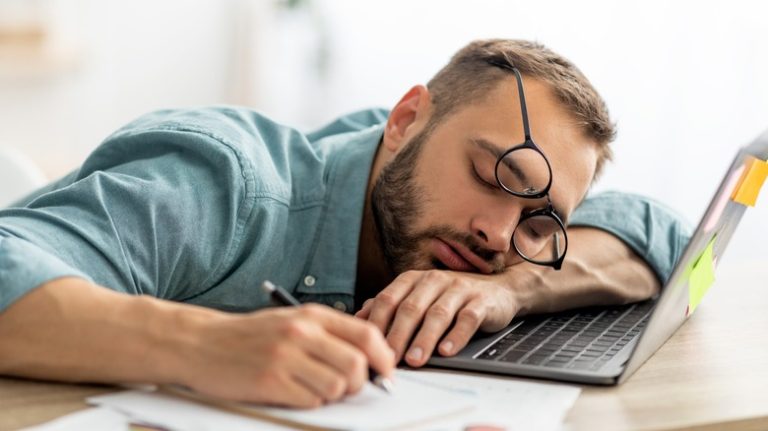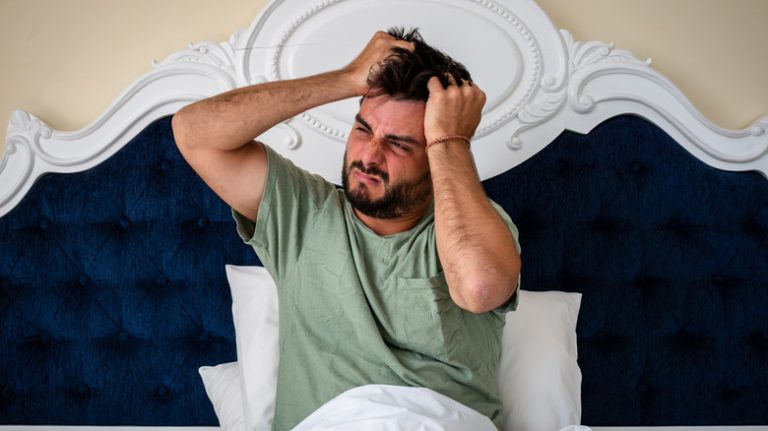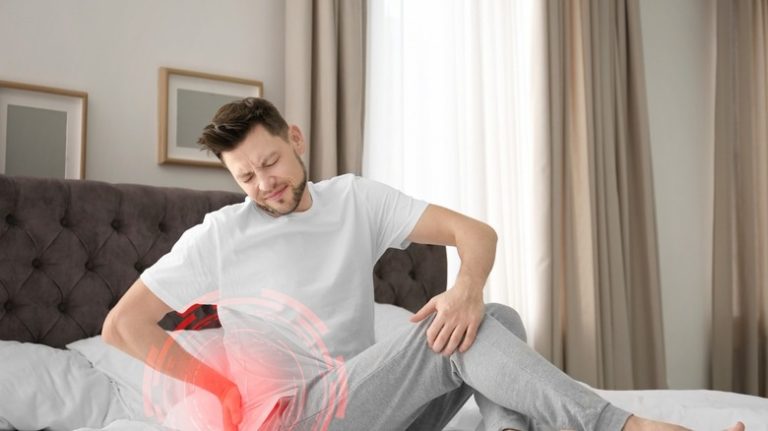There’s really not enough that can be said about the importance of getting a good night’s rest. Right up there with exercising and dieting, sleeping enough each night is vital to the functioning of nearly every system in our bodies.
According to Healthline, while everybody’s ideal amount of sleep each night may vary, most adults need anywhere between 7 to 9 hours each night to be healthy. Unfortunately, 35% of American adults are not meeting these requirements, which can lead to a whole host of health concerns. To start, not getting enough sleep can affect your weight as a result of hormonal changes and general lack of motivation when it comes to physical exercise.
Furthermore, a lack of sleep is also linked to increased incidences of heart disease, high blood pressure, and an increased risk of diabetes. If you struggle with getting enough sleep each night, it might be time to re-evaluate some of your sleeping habits to help you drift off into a much more peaceful and deep slumber. Continue reading to discover the 14 mistakes you might be making before you go to bed.
Sleeping with lights on
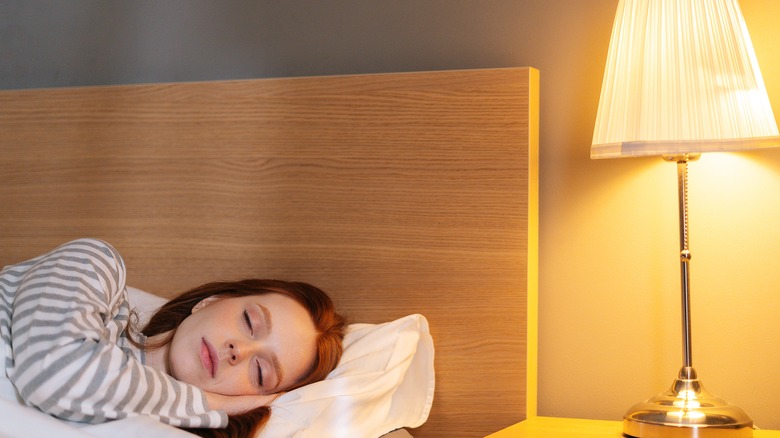
It’s easy to imagine the scene: you’re in bed after a long stressful day, and you have every intention of peeling yourself up off the mattress to turn off the lights, but they are just too darn far away. You end up drifting off into a light sleep, only to wake up an hour or so later with the lights blaring in your eyes. You shirk under the covers like a vampire.
Keeping the lights on before bed or during sleep may seem innocent enough, but science has compiled enough evidence to prove otherwise. According to experts at the Sleep Foundation, light is the most important external element that affects sleep. Light affects both our circadian rhythm, which is our body’s natural cycle of sleep and wakefulness, as well as the regulation of the hormone melatonin, which is responsible for making us sleepy. While our ancestors fell asleep at dusk and awoke at dawn with the natural cycles, modern day humans have a variety of external disturbances that interfere with natural light sources and can affect our quality of sleep. Exposure to light in the evening can push us to fall asleep later, thus resulting in less sleep.
The best advice? Sleep in as much darkness as is possible. That means eliminating night lights, and using blackout curtains to prevent artificial light from entering your room.
Watching T.V. before bed
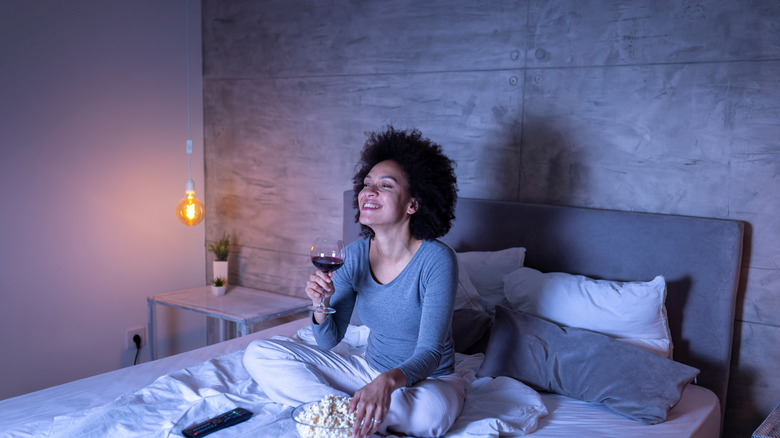
Binge watching Netflix series has become somewhat of a sport these days. When you start one episode, it can be tempting to finish the entire series until the end, and oftentimes these marathons can extend long into the night until you peel yourself off the couch and head to bed (or fall asleep right there).
Well, sorry, Netflix lovers, but neither of those two things are good. According to a study published by the Journal of Clinical Sleep Medicine, a whopping 60% of Americans watch T.V. at least an hour before bed (so at least you’re not alone). Per Healthline, there are a number of reasons to switch off the T.V. before drifting off. For starters, watching T.V. before bed can increase what’s called your “sleep debt.” Because adults need an average of eight hours of sleep each night, anything less than that falls into the “debt” category. Watching extra episodes of your favorite television show is cutting into those eight hours if you need to get up at a certain time each morning, thus contributing to a lack of sleep. Furthermore, watching T.V. can stimulate your brain, which makes it harder to shut off to get good sleep. Again, while you may be able to fall asleep, you may not enter into an REM sleep, which is more restful.
Using tech before bed
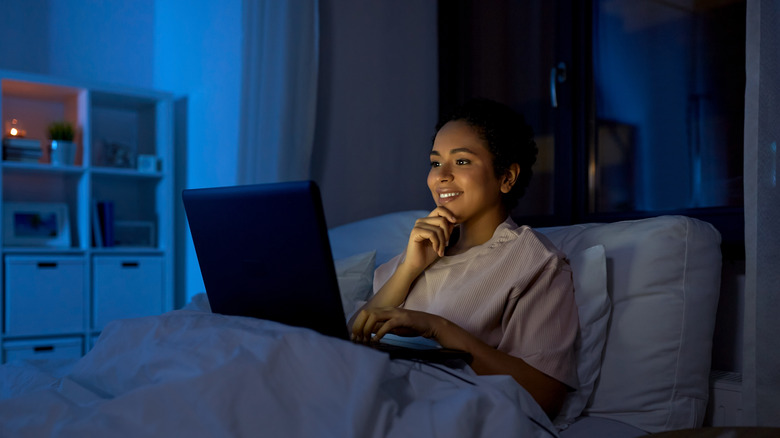
Syda Productions/Shutterstock
In a similar vein to watching television before bed, using tech such as your computer, tablet, or cell phone can have a similar negative impact on your sleep quality.
There are several reasons why bringing tech into the bed isn’t good for your sleep, and one of the primary reasons is the effect of a type of light called “blue light” that emanates from most tech devices, as well as from fluorescent lighting. According to Healthline, blue light is a type of light that emits “very short, high energy waves,” which can be damaging to the eyes in several ways. You may have already heard about the effect that blue light has on your vision, but how does it affect your sleep? The Sleep Foundation shares that research has shown that blue light can limit the production of melatonin, the hormone that is directly responsible for making you feel sleepy.
Blue light can also affect the quality of REM sleep — which, as has been stated, is necessary for a restful night of sleep. Experts at the site recommend a complete elimination of technology from the bedroom. If you insist on using them before you fall asleep, an alternative would be to switch your devices to “night mode” or enable a blue light blocker.
Worrying about sleep
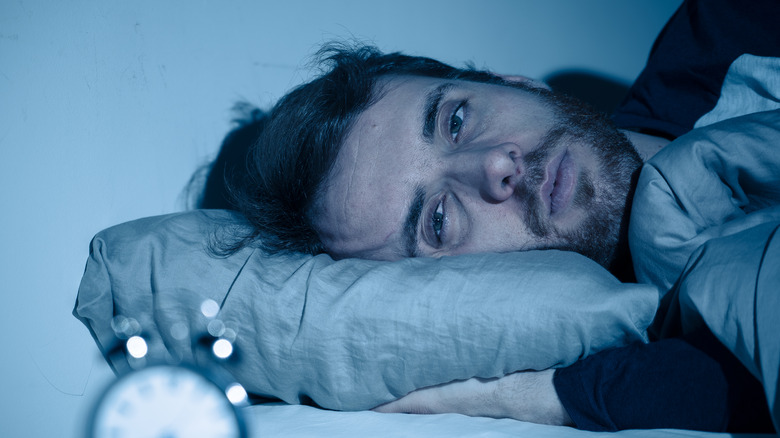
SB Arts Media/Shutterstock
With all of these potential threats lurking around every corner ready to disturb a peaceful night’s rest, it might be tempting to give into worry. However, science says the exact opposite is what you need to do if you want to get some high-quality Zzz’s at night.
According to WebMD, sleep anxiety is characterized by fear or anxiety around falling asleep. Because sleep and mental health are connected, experts at the site explain that if you deal with anxiety or other psychiatric disorders, it can directly affect your sleep. Annika Norell-Clarke, psychologist at Örebro University in Sweden spoke to Science Norway about a study she conducted, evaluating 1,800 people’s sleeping habits. She found that of all the people who experienced poor sleep, those who worried about sleep experienced long term effects of insomnia. She also concluded that worrying wasn’t just a symptom of insomnia, but it actually encouraged it.
Although it may be easier said than done, Norell-Clarke suggests adopting a more neutral attitude about the occasional loss of sleep, so it doesn’t spiral out of control into full-blown insomnia. If anxiety around sleep persists, she also suggests cognitive behavioral therapy as another option.
Keeping a pet in the bed
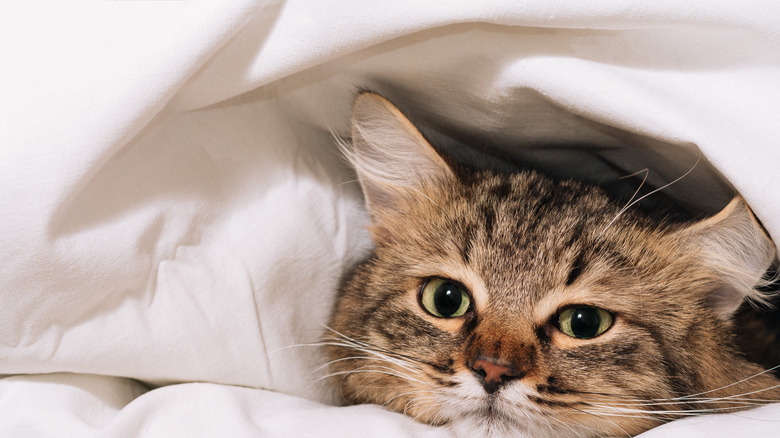
awindrunner/Shutterstock
As tempting as it may be to keep cute and fluffy fido in the bed with you as you drift off, if you plan on getting a solid night’s rest, it may not be the best idea. As much as you might love your pet, when it comes to bedtime, they can present a significant distraction as you drift off to sleep, or disturb your rest during the night.
A study published by Mayo Clinic Proceedings surveyed patients at the Center for Sleep Medicine and found that 56% of people slept with pets in their bedroom, while 35% of people surveyed slept with them in their bed. While there are some benefits to keeping your pet in your bed, such as an increased sense of security and comfort, there are also cons. In a study published by the U.S. Department of Agriculture, researchers studied a small segment of dog owners and monitored their sleep. They found that when the dogs moved in the bed, the people moved as well, causing disturbances in their sleep. They specifically found that people were 4.3 times as likely to be awake when dogs were awake at night, which was 20% of the time.
Staying in bed when you can’t sleep
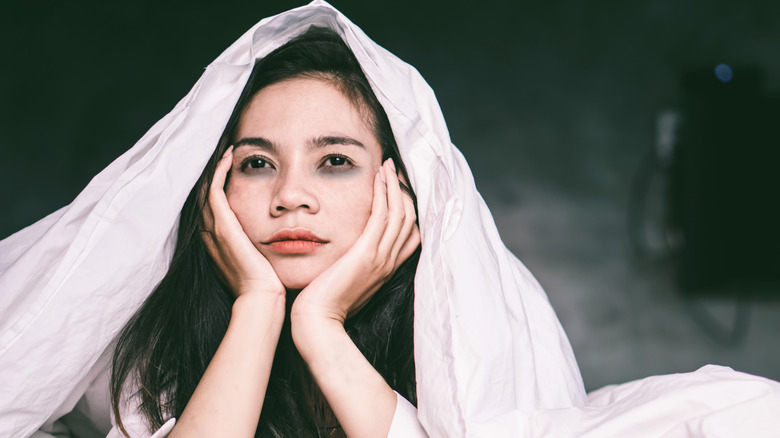
Doucefleur/Shutterstock
So you’ve finally made it to bed eager and ready to fall asleep — except you can’t. By now, an hour or two has passed, with no sleep in sight. So what do you do? Do you lay there and hope for the best? Or do you get up and move around and wait until you’ve worn yourself out? Apparently, experts recommend the latter.
According to WebMD, if you’re in bed struggling to fall asleep or wake up in the middle of the night, wait at least 20 minutes to fall back to sleep before attempting to get up. It’s best to not watch the clock during this time, as it might further stress you out, but if 20 minutes have passed without you nodding off, you have the green light to get up. Michael Perlis, PhD, director of the behavioral sleep medicine program at the University of Pennsylvania, explained to WebMD exactly why this is the best approach. “The problem with staying in bed for any appreciable amount of time is that this reinforces sleeplessness, physiologically and psychologically,” he says. The site recommends leaving your room and doing a calming activity like reading, listening to calming music, or meditating, and to avoid screen time or high energy activities.
Falling asleep on your stomach
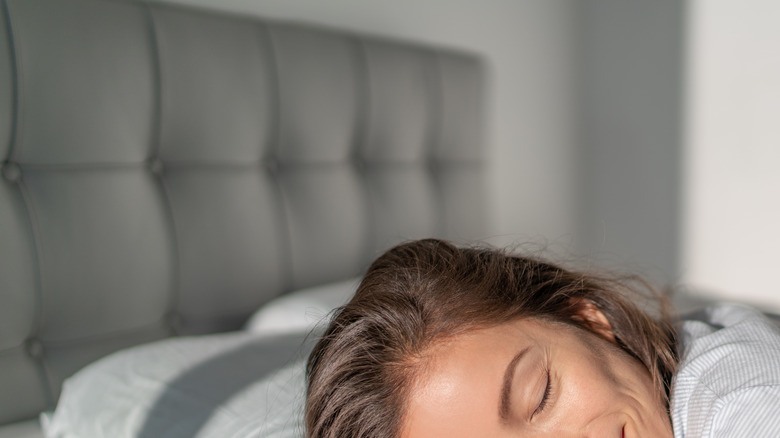
Maridav/Shutterstock
Finding the perfect sleeping position can be worth its weight in gold. When you find that perfect spot in the bed or that perfect way to assemble your pillows, it can feel much easier to drift off to sleep.
While what feels best will vary from person to person, experts say that some sleeping positions are better than others, and that some can be downright painful. Healthline explains that sleeping on your stomach can cause pain to your back and neck that can actually interfere with sleep. Sleeping on your stomach places pressure on the middle of your body, which places strain on your neck and spine. Because your spine sends messages to the rest of your body, this stress can actually cause pain in other places or make parts of your body “fall asleep.”
In order to breathe (this is, of course, important), you need to turn your head to the side, which causes your neck to be out of alignment with your spine, causing further strain and pain. While it might seem obvious, this position is especially harmful to pregnant women (who should sleep on their left side to increase blood and oxygen flow).
Not relaxing properly before bed
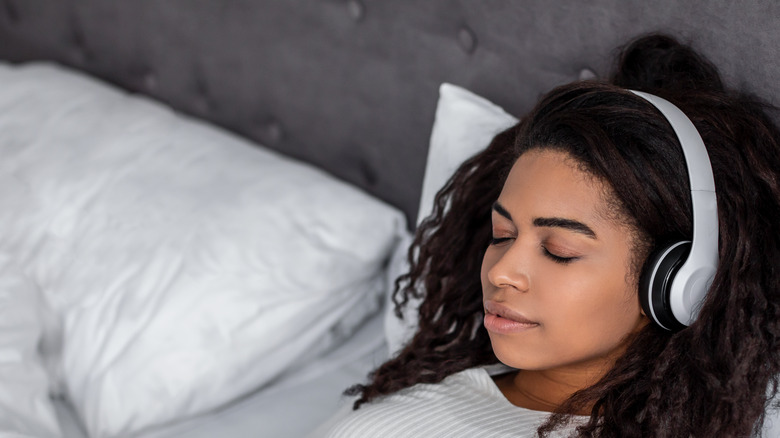
Prostock-studio/Shutterstock
After a long day of work or whatever other hectic things were packed into your schedule, the ideal plan might sound like coming home, eating, and then crashing. However tempting that may be, slowing down your roll before tucking in for the night is a better bet.
According to experts at the Sleep Foundation, developing a relaxing practice pre-falling asleep can significantly reduce stress and anxiety, and thus improve your sleep quality. Experts at the foundation have narrowed down a series of practices to try once you’re in the bed to help you drift off peacefully. The first practice they mention is to try controlled breathing exercises including pranayamic breathing, which has been shown to calm the nervous system and prepare you for sleep. Another breathing exercise is the 4-7-8 method, in which you inhale, hold your breath, and exhale for the respective amount of seconds.
Mindful meditation and progressive muscle relaxation are additional techniques that can help relax your body and mind to prepare you for sleep. If you are more of a visual person, however, the site recommends using imagery by recalling a peaceful moment from your past where you felt relaxed as a way to calm you down.
Not putting on the right clothes
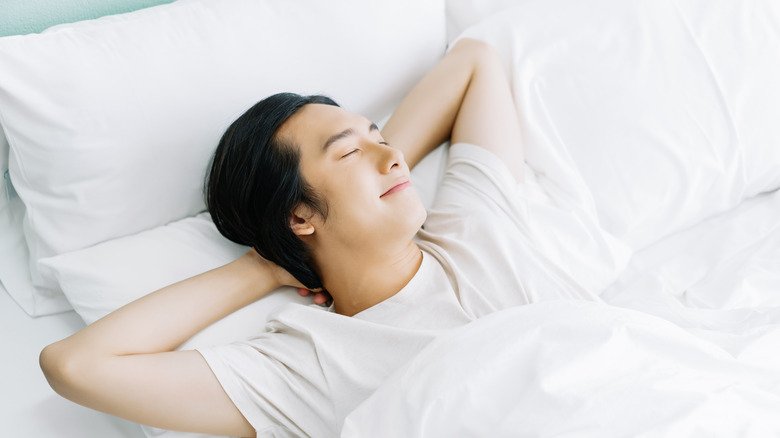
zEdward_Indy/Shutterstock
If you’re having trouble falling or staying asleep and have tried an abundance of remedies to help you do so, you might consider re-evaluating your bedtime attire.
According to experts at Sleep.org, pajamas come in a variety of fabrics that serve different purposes, and “slipping into something more comfortable” may help you drift off to sleep more easily. For example, you may be familiar with classic silk sleepwear; that material is known for being soft, strong, and breathable, the last of which is key in helping you regulate your body temperature. Other materials such as polyester, while affordable, are not as breathable as fabrics like cotton or linen.
Choosing the right pajamas may ultimately depend on the room temperature or your personal preference, but finding the best fabric to slip into before bed will be key in helping you to fall and stay asleep more easily. Furthermore, putting on pajamas can be an integral part of your nighttime routine that signals to the body that it’s time to wind down, so do yourself the favor of avoiding crashing in your daytime clothes.
Using your bed for anything other than sleep or sex
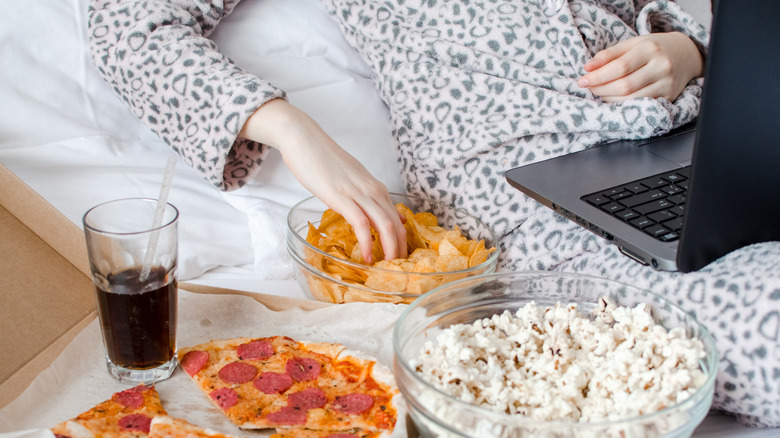
Nelli Syrotynska/Shutterstock
Your bed is an inviting place. It beckons you to let your hair down and relax, the one place in the world you feel like you can truly be yourself. Because of that, it can be easy to carry other activities like eating, working, or even socializing into this sacred space during the day or night, but let it be known: the sleep experts caution against it.
According to Health.com, the bedroom is a sacred zone that should be used for two things and two things only: sleep and sex. Gary Zammit, PhD, director of the Sleep Disorders Institute in New York City, spoke to Health and explained it thusly: “One of the biggest mistakes people make in their bedrooms is they try to cram too much in there. They use it as an office and as an entertainment room right up until the clock strikes 10, and expect to just hit the lights and fall asleep. But the brain doesn’t work that way.”
Experts at the site say that while the television is the most popular bedroom distraction, other things such as workout equipment, computers, and paperwork should also be removed, as they can remind you of non-sleep-related things as you are drifting off.
Allowing your thoughts to run wild
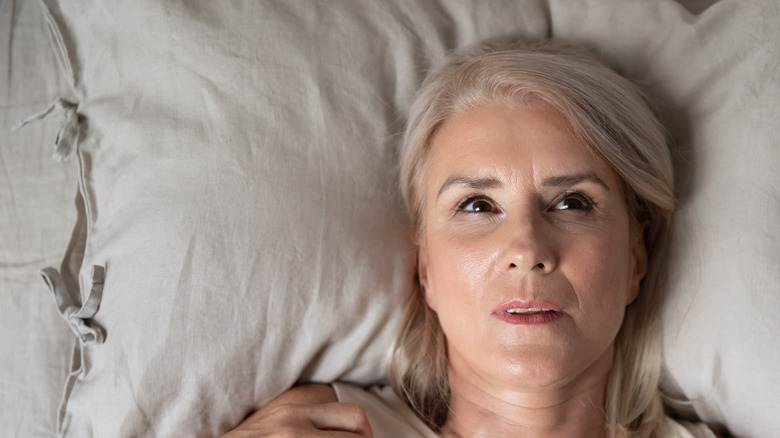
Fizkes/Shutterstock
As you’ve probably seen by now, it can be somewhat tricky separating the day’s activities from your nighttime routine. You’re human, after all, not a machine. Thus, it’s natural that some of what happens during your day will trickle into your time in bed.
Despite this fact, ruminating on what happened during the day — especially if it was stressful — will only cause you more harm when it comes to getting quality sleep. The good news is that if you are the worrying type, you’re not alone. Lawrence Chan, DO, a professor of sleep medicine at The Ohio State University Wexner Medical Center in Columbus, spoke to Everyday Health and said about the habit: “It’s one of the most common problems we hear in our sleep clinic, especially among people struggling with insomnia.”
So why does this happen, exactly? Our brains are constantly receiving information all day, and it typically isn’t until we’ve calmed down and gotten into bed that we have time to process it all. To help stop this process, experts suggest unplugging from devices and from social media before bed, writing down a “gratitude list,” and writing down any worries to get them out of your head.
Falling asleep on the couch
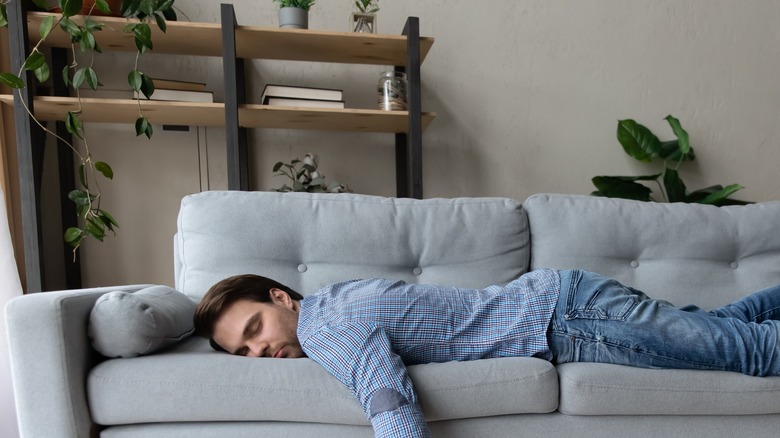
Fizkes/Shutterstock
You’ve made dinner, sat down to watch your favorite T.V. show, and the next thing you know, you’ve woken up at 3 a.m. and the television is blaring in your face. How did that happen?
If your next thought is “Well…I guess I could just stay here,” it’s probably best to think again. According to experts at the Sleep Foundation, mattresses were made for a reason, which is to properly support your body as you sleep for hours at a time each night. Couches were not made for this purpose, and can cause discomfort when slept on for extended periods of time. Typically, the width of a couch is not going to be as large as a bed, which can make it hard for sleepers to change positions or get comfortable. Because people switch positions every hour on average, not being able to do so on a couch can reduce sleep quality significantly. Furthermore, because mattresses are specifically designed to support your spine (while couches are not), it’s possible to experience back and neck pain due to the lack of support and the compressed position you may find yourself in.
Keeping your phone by or in your bed
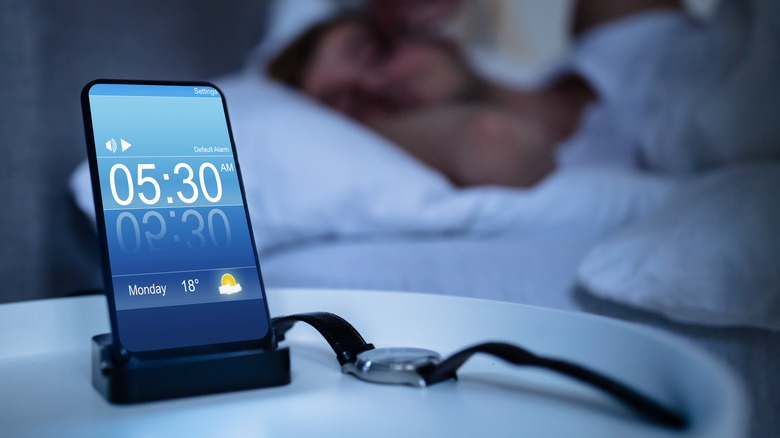
Andrey Popov/Shutterstock
You’re probably aware by now that being on your phone before bedtime is a big no. While technically you may have sworn off social media scrolling and email checking before bed, if you keep your phone tucked underneath your pillow or right within arm’s reach, you just might be setting yourself up to fail.
According to experts at Verywell Health, the very nature of our relationship with technology can trigger a “compulsive desire” to check, scroll, and respond, making it hard to put your phone or device away. Even the smallest amount of light from notifications can affect your circadian rhythm, making it harder to fall asleep. Keeping your phone out of your bedroom can prevent you from checking your phone needlessly, or being distracted by alerts and lights. Furthermore, some research has raised awareness about the electromagnetic radiation emanated from cell phones and the possibility of their carcinogenic effect on humans. While no conclusions have been drawn, experts at Verywell Health say the issue is being investigated by The World Health Organization.
Going to bed late

PR Image Factory/Shutterstock
Night owls, take note. While you might be in the habit of staying up late and having to rise early to start the day, it might be time to switch up your routine. Pushing your bedtime past a reasonable limit on a consistent basis can have negative consequences that extend beyond a little fatigue the next day.
According to a study published by Chronobiology International, going to bed late can actually contribute to high blood pressure and be a precursor to type 2 diabetes. Furthermore, experts at Health.com explain that there is a correlation between those who tend to stay up late and a tendency toward depression and low mood. A study published in the journal Depression and Anxiety examined just under 2,000 people and saw that those who suffered from major depression and anxiety were associated with a “late chronotype,” which in simple terms means they go to bed late.
Not all hope is lost, however. While what time you choose to go to bed can actually be encoded in your genetics, you can actively take steps to shift the pattern by choosing each day to turn in a little bit earlier (without forcing yourself to stay awake, of course).

